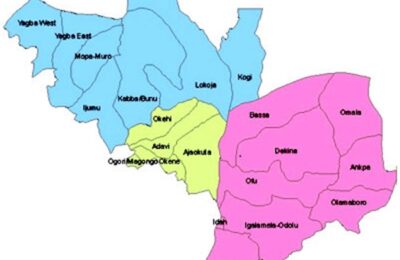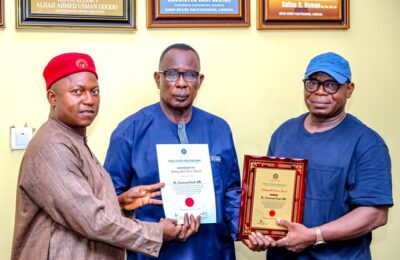They say a prophet is not honoured in his own town — Nigeria has turned that proverb into public policy. While our university graduates roam the streets with crumpled CVs and crushed dreams, expatriates with mere diplomas from obscure foreign colleges are welcomed with red carpets, Toyota Hilux escorts, 5 Star hotel lounge and scandalous salaries. In the land of oil, the minds that should refine it are burnt at the altar of inferiority complex. Painfully, Nigerian leaders because of greed and corrupt tendencies do not value their own — yet a Nigerian undergraduate who trekked across the Sahara Desert and floated through death on the Mediterranean Sea is often celebrated by American/ European governments with full scholarships, housing, and a second chance. Who then should cry more — the desert, the sea, or the country that gave them nothing until they nearly died?
The shame becomes personal when experienced firsthand. While working in a telecom company in Abuja and later at a Chinese-owned construction firm, I encountered this national insult face to face. Human Resource officers — Foreigners and Nigerians themselves — would get visibly irritated when I presented my degree results during interviews. With contempt, they’d collect the neatly printed documents and fling them aside like waste paper. I once heard a manager mutter, “We don’t have time for all these results. Just say if you can work for less.” What they sought wasn’t brilliance — it was cheap labour. But these same firms would never dare such disrespect to the illiterate expatriates they employed — men rumoured to be ex-con and couldn’t string a sentence in English, who came from rural provinces abroad and held nothing more than technical certificates or bare experience. Yet they were treated as kings. The rest of us? Houseboys in neckties.
This is more than economic inequality — this is national schizophrenia. A country that bullies its own scholars while pampering foreign semi-literates is not in recession; it is in regression. Professor Claude Ake once declared, “The problem with African development is that it excludes the people.” Nigeria’s version excludes its most educated. It takes pride in foreign failures but frowns at local success. What else explains why a technician from India or Pakistan with a National Diploma in Electrical Fittings is paid thrice the salary of a Nigerian B.Eng holder from UNILORIN?
Let us speak the truth: Nigerian graduates are not jobless because they are unskilled — they are jobless because they are undervalued. While expatriate crane operators and tilers from China get monthly pay that can build a bungalow, our best brains beg for internships with no pay and if casualised they are paid as as ₦40,000 naira . This is how nations die — not with wars, but with the burial of talent. We have built a country where certificates don’t matter unless they’re foreign and where value is judged by accent, not by ability.
Even worse, this self-hate is managed and maintained by our own people. When you present a local degree, you’re seen as a burden. Present a foreign diploma in Catering from Slovakia, and the doors swing open. The HR officer will offer tea, even when the applicant can’t spell “hospitality.” A Nigerian graduate who understands six programming languages is asked to accept atmost ₦50,000/month, while a South Asian man who can’t turn on a laptop without help is assigned a company car. What sort of systemic blindness is this? Could it be a curse?
Chinua Achebe wrote, “The trouble with Nigeria is simply and squarely a failure of leadership.” But we must now go deeper. This is not just leadership failure — it is identity failure. When a nation hates its own reflection, it will shatter every mirror of possibility. Our leaders sponsor their children abroad while public universities decay. They import ‘experts’ with half-baked résumés while our professors beg for research grants. Who did this to us? And why do we keep doing it to ourselves?
We must reject this madness. Albert Einstein said, “The value of a college education is not the learning of many facts, but the training of the mind to think.” Nigerian graduates can think — what they lack is a nation that believes in their thoughts. It’s time to restructure the mentality of employment in Nigeria. Local degrees must be prioritized. Policies should punish firms that practice educational racism. And national pride must be taught again — from primary school to the presidency.
Let the truth be told: some of these expatriates are academic failures, rejected in their homelands, who found respect only in Nigeria. And we — we who produced Chinua Achebe, Wole Soyinka, Dora Akunyili, and countless global changemakers — are the ones clapping for them.
Until Nigeria stops selling her brains and starts investing in them, we will remain a self-humiliating empire — rich in potential, bankrupt in pride.
– Inah Boniface Ocholi writes from Ayah – Igalamela/Odolu LGA, Kogi state.
08152094428 (SMS Only)




